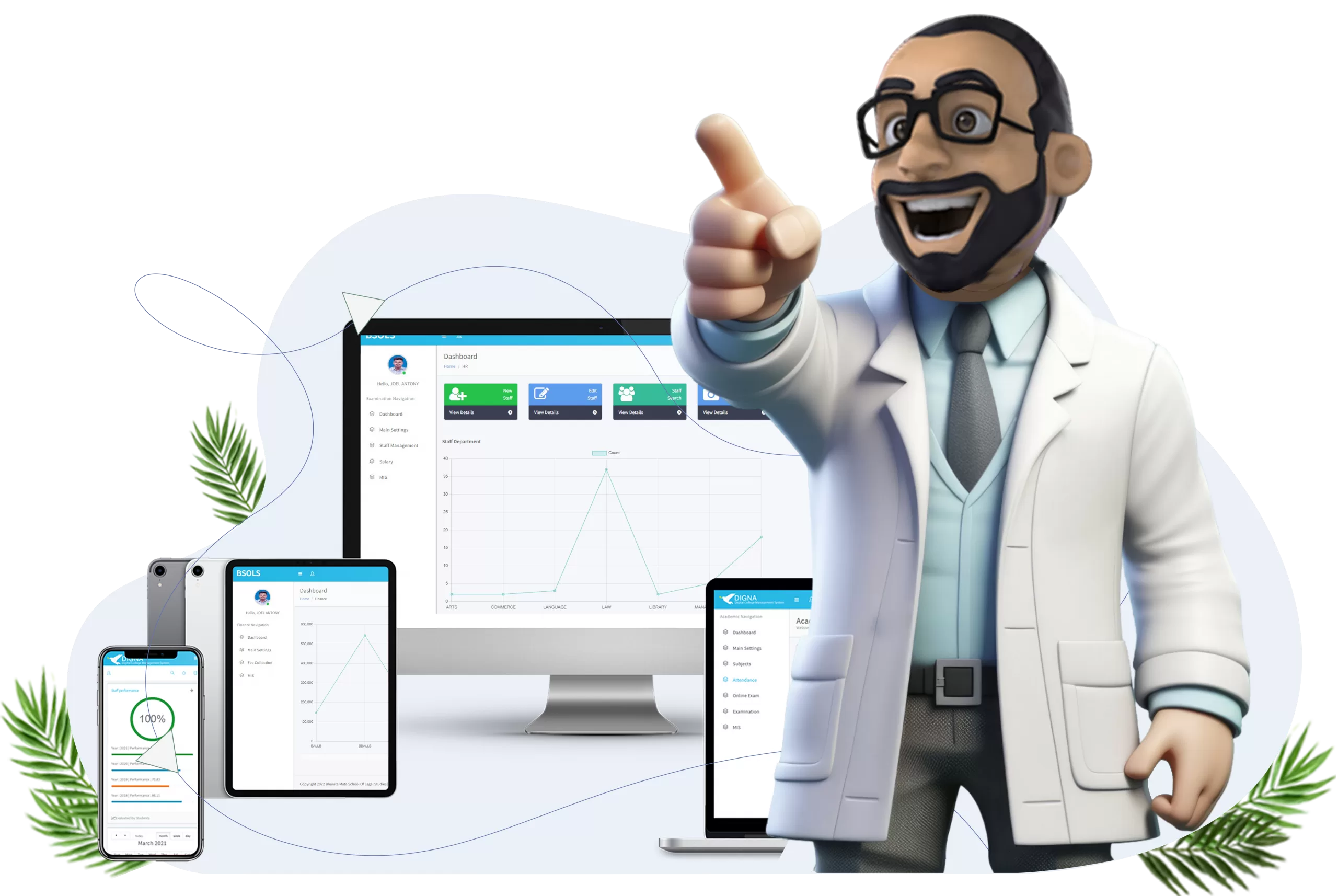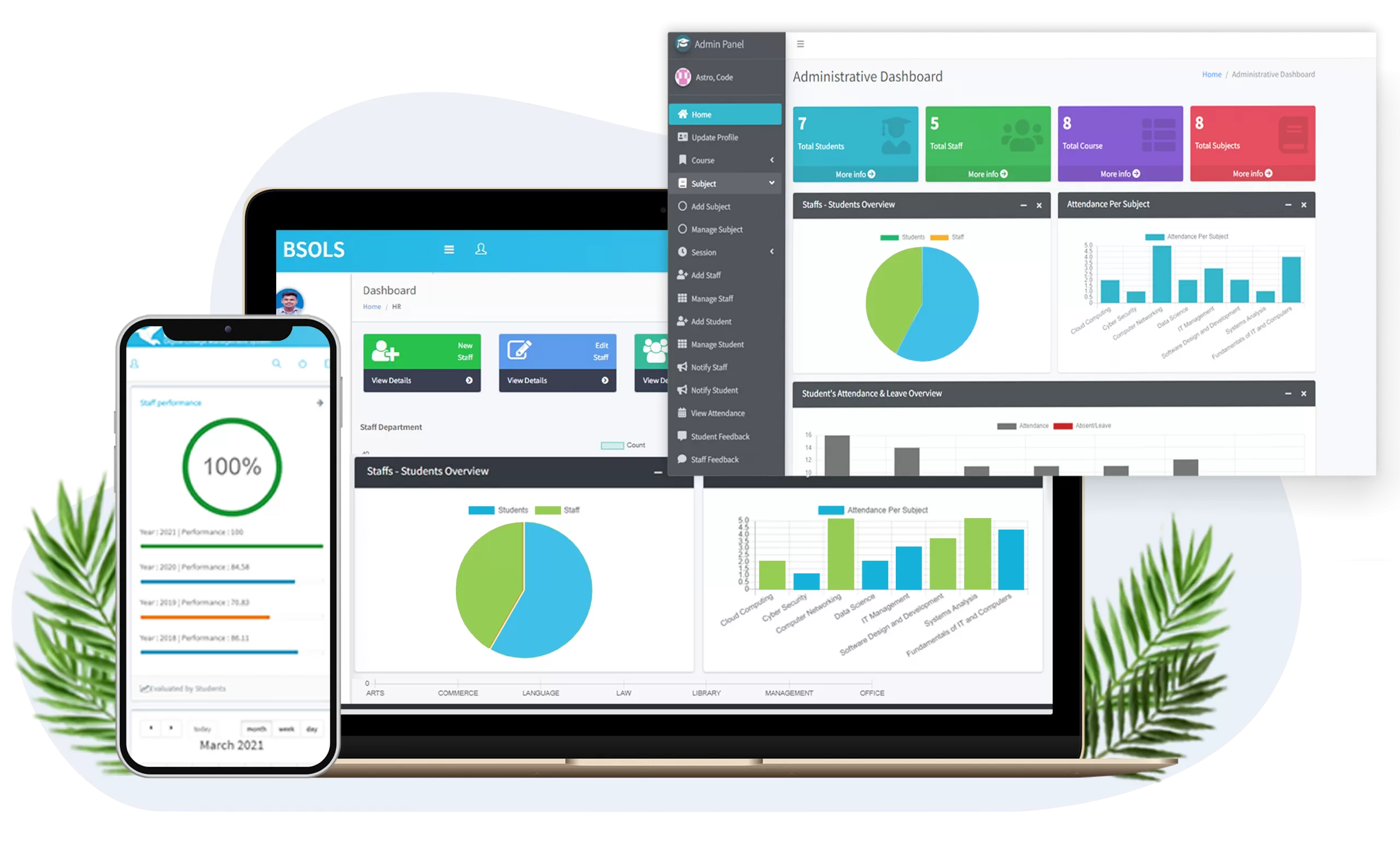Autonomous College Management System Software
Autonomous College Management System Software
Softloom Autonomous college management system software Simplify academic management and automate daily tasks. Colleges and universities can use this software.
Autonomous college management systems help institutions achieve their missions and goals, increase enrollment, and streamline college administration from admission to graduation. It’s a great tool that colleges and higher education institutions can use to manage all records, provide excellent learning experiences to students, improve operational effectiveness, and reduce costs. The autonomous college management software is highly configurable, customizable, scalable, and flexible and ensures college leads receive accurate reports on administration and academic aspects. For administration, faculty, and students, it enhances communication and works better and more intelligently.


Core Models of Autonomous College Management System Software
Cloud Based Autonomous College Management System Software

Nowadays, automation and computerization have made enrolling, admitting, collecting fees, conducting examinations, etc., easier for Autonomous colleges. All activities of the College are managed efficiently and accurately by Autonomous college management software.
Data management and streamlining daily activities are always challenges for prominent autonomous colleges. Nevertheless, we have developed a viable, feasible solution based on our unique expertise, experience, and resources. Data Security, Encryption, and User Experience are some of our key building blocks.

Benefits Of Autonomous College Management System Software
Centralized Admissions
Paperless admissions have become a necessity in every Autonomous College today. A well-managed inquiry and admission process can dramatically improve the experience of prospective students and the productivity of administration and counselling staff. Integrating fees and finance management can increase financial efficiency and transparency. Managing autonomous colleges is made easier with Softloom‘s robust modules.
Outcome Based Education
Through the analysis, assessment, and mapping of student learning outcomes (POs), course outcomes (COs), and program education objectives (PEOs). Autonomous colleges & Universities can use outcome-based education to analyze, assess, and map the lessons learned by students.
Better Communication
Coordination between departments, entities, and functions is strong at the College. College ERP eliminates the possibility of misunderstandings between departments. In the communication between departments, there is high transparency, recording, and accessibility. Additionally, there may be channels of communication that are personal and candid. Through this feature, Autonomous CMS administrators can leverage access-based communication privileges.
Choice-Based Education System
Autonomous Colleges offer standard courses as well as electives. Students can choose from these electives using education ERP software. In addition, students can specialize in specific subjects through this choice-based education system.
Easy in Operation
Autonomous College management is a complex process. Education ERP software should simplify operations and reduce complexity. Easily controllable even by non-technical users.






